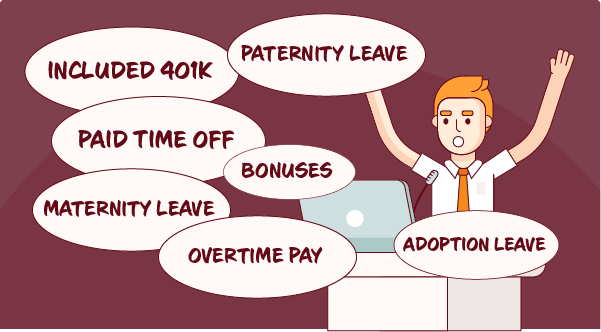Wil Schroter

There's a more implicit social contract at a startup, which says that if our teams are going to kill themselves and take on risk to build something amazing with us, they rightfully expect some rewards for that risk. Let's take money off the table — because anyone can pay money and we all understand that.
What payback do our employees want that wasn't in their offer letter?
We Owe Them Our Attention
Nothing sucks worse than not being heard. We can almost map every major problem back to someone genuinely feeling like what they have to say just never really had an ear. The biggest casualty to startup growth is internal communication, but we're not really just talking about meetings and Slack messages. We're talking about folks no longer having the ear of the founding team — the folks they really committed to, and those that can shape real change.
We owe it to our team to never close them off, especially when it's something we don't want to hear. We owe them a seat at the table, even if that seat doesn't come with a big fancy title. It doesn't mean they have to "tell us what to do" but they've earned the right to share their opinion. Side note: If you're an employee reading this, the Founding team or management has also earned the right to be treated respectfully with how that opinion is shared.
We Owe Them Transparency
No person would ever say, "Hey, I'd love to work on a relationship where every year that goes by I know less and less about how the relationship is going." While communication is important, so is a certain level of transparency. Transparency isn't just about letting folks in on big decisions or sensitive company information. It's about being transparent about the thought process of how decisions were made to begin with.
We're entering a new era where it's OK to open up and discuss what's actually going on inside our heads. Even when we make bad decisions, it's not just about saying, "We fucked up." It's about saying, "Here's where my head was going into this, and here's why I tried to do the right thing with the information I had, but here's where it all went wrong." The answer may still be awful, but folks deserve to know how we even got to that answer.
We Owe Them Humility
Success is the superfood of the ego. As we slowly transform from struggling startup to industry titan, our self-confidence both personally and across the company grows. We feel that we have become something bigger than ourselves, as often our identity is intertwined in the success of the company.
But that success cannot come at the price of our humility. We owe it to our team to remind them constantly that "we" got here — not just "me." Our success is a result of every single input from our team, not just a single heroic act of the Founder. We cannot find ourselves on a pedestal above everyone else, because it's at that moment we have our greatest separation. We owe it to our staff to stand with them, not above them.
This list goes on and on. If there's something you'd like to add to this list, tweet me @wilschroter and let me update this article and our Startup Therapy podcast!
In Case You Missed It
Treat Departing Employees like Future Employees While saying goodbye to departing employees isn’t easy, how we handle it is totally in our control and can impact our future professional relationships.
What If The Founder's Personality Is A Startup's Liability? What do we do if we suspect our own personalities might be a problem in our startup? How do we know if it's even something to dig into? And if we do find out we're the problem, what do we do about it?
Founder Reputation (podcast) Reputation: we all have an understanding of the long term & lasting impacts it has on your standing as a Founder, but how do we cultivate our reputation? Remember, your reputation is very hard to build & very easy to destroy — so listen up!
Find this article helpful?
This is just a small sample! Register to unlock our in-depth courses, hundreds of video courses, and a library of playbooks and articles to grow your startup fast. Let us Let us show you!
Submission confirms agreement to our Terms of Service and Privacy Policy.
Already a member? Login
Start a Membership to join the discussion.
Already a member? Login

Interested in reading the full content of this article but it stops at "We're talking about folks no longer having..."